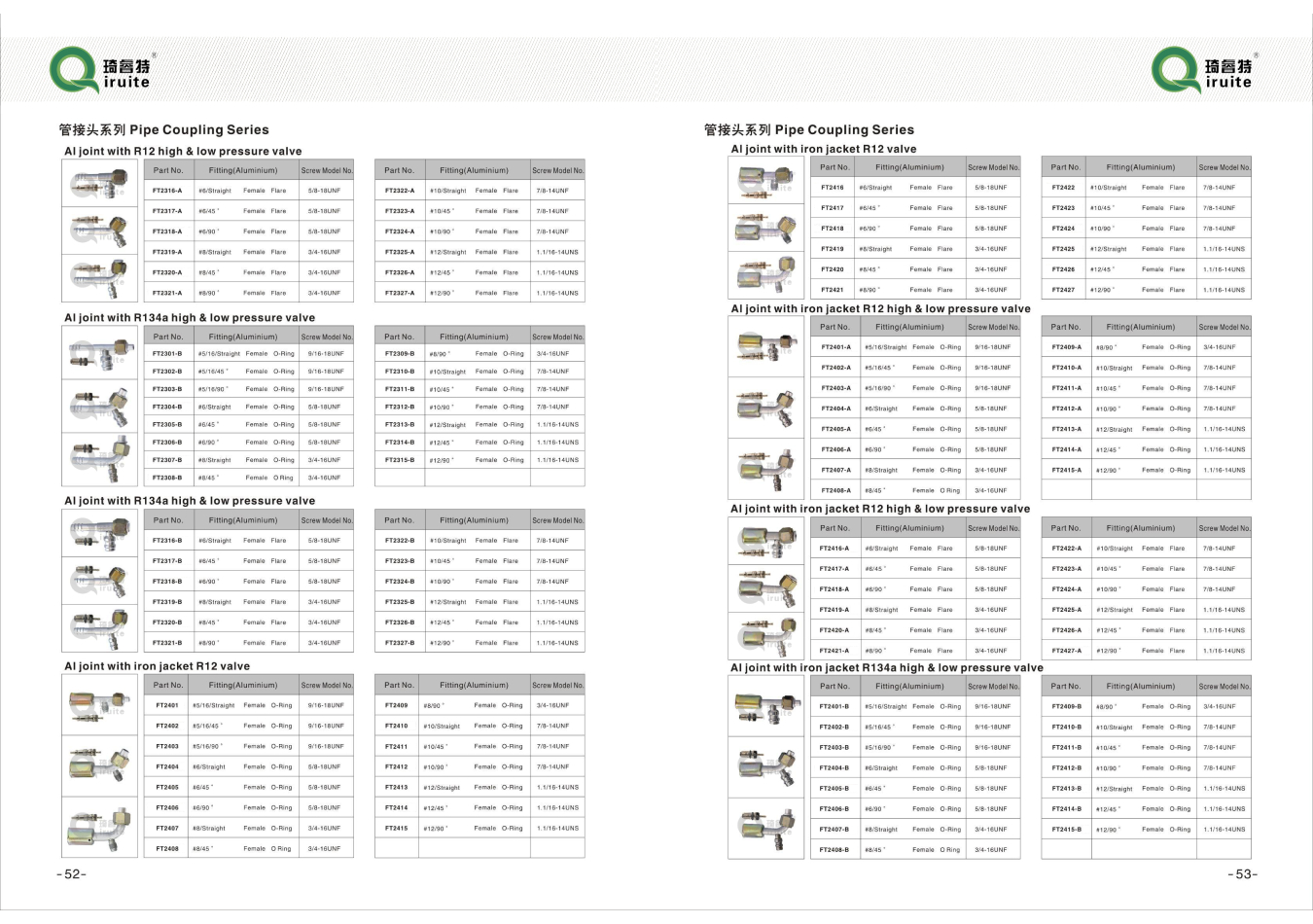Understanding the Importance of Brake Vacuum Hoses in Vehicle Performance and Safety
Understanding Brake Vacuum Hoses Importance, Function, and Maintenance
Brake systems are vital to the safety and performance of any vehicle, and within this intricate system lies a crucial component the brake vacuum hose. This article will explore the importance of brake vacuum hoses, their function in the braking system, and essential maintenance tips to ensure they function efficiently.
What is a Brake Vacuum Hose?
A brake vacuum hose is a flexible tube that connects the brake booster to the engine's intake manifold. The brake booster is a critical component of the braking system, utilizing vacuum pressure to multiply the force applied by the driver’s foot on the brake pedal. This amplification allows for smoother and more effective braking with less effort.
The Functionality of Brake Vacuum Hoses
The primary role of the brake vacuum hose is to carry vacuum from the engine to the brake booster. When the engine is running, it creates a vacuum in the intake manifold, which is then transmitted through the vacuum hose to the brake booster. The vacuum pressure assists in moving a diaphragm within the brake booster, which significantly enhances the force exerted on the brake master cylinder.
This process greatly reduces the amount of pedal effort required by the driver. For instance, without a proper functioning vacuum hose, a driver would need to apply substantial pressure to the brake pedal, leading to a less responsive braking system. In situations requiring quick stops or emergency braking, this can be particularly dangerous.
Signs of a Failing Brake Vacuum Hose
Like all components in a vehicle, brake vacuum hoses can wear out over time. Early identification of potential issues can prevent accidents and costly repairs. Here are some common signs indicating that a brake vacuum hose may be failing
1. Hissing Sounds A noticeable hissing sound when you press the brake pedal can indicate that air is escaping from a leak in the vacuum hose.
2. A Hard Brake Pedal If the brake pedal feels unusually hard to press, it could be a sign that the brake booster isn’t receiving the necessary vacuum pressure due to a faulty hose.
brake vacuum hose

3. Warning Lights In some vehicles, a warning light on the dashboard may signal an issue with the braking system, often related to the vacuum hose.
4. Poor Braking Performance If the brakes are less responsive or take longer to engage, it’s essential to have the hose and other brake components inspected.
Maintenance Tips for Brake Vacuum Hoses
To ensure the longevity and effectiveness of brake vacuum hoses, regular maintenance is key. Here are some tips to keep in mind
1. Routine Inspections Inspect the vacuum hose regularly for signs of wear, such as cracks, fraying, or discoloration. Ensuring the hose is in good condition will help maintain optimal performance.
2. Check for Leaks Listen for hissing sounds or check for any visible signs of air leaks. If you suspect a leak, it’s best to consult a professional mechanic for further examination and potential replacement of the hose.
3. Keep Connections Clean Ensure that the connections at the vacuum hose and the brake booster are clean and free from debris. Proper connections help maintain effective vacuum pressure.
4. Replace When Necessary If you notice any signs of wear or damage, replace the vacuum hose promptly. It’s better to address these issues early than to wait until they escalate into major problems.
5. Follow Manufacturer Guidelines Consult your vehicle’s owner manual for specific maintenance schedules regarding your brake system, including the vacuum hose.
Conclusion
The brake vacuum hose is a vital part of your vehicle's braking system, playing a crucial role in safe vehicle operation. Understanding how it functions, recognizing signs of failure, and practicing regular maintenance can significantly enhance the reliability of your brakes. Always prioritize safety by ensuring your braking system, including the vacuum hose, is in excellent working condition. In case of any doubts or issues, don't hesitate to seek professional assistance. Regular maintenance is not just about performance; it's about ensuring the safety of you and other road users.
-
Ultimate Spiral Protection for Hoses & CablesNewsJun.26,2025
-
The Ultimate Quick-Connect Solutions for Every NeedNewsJun.26,2025
-
SAE J1401 Brake Hose: Reliable Choice for Safe BrakingNewsJun.26,2025
-
Reliable J2064 A/C Hoses for Real-World Cooling NeedsNewsJun.26,2025
-
Heavy-Duty Sewer Jetting Hoses Built to LastNewsJun.26,2025
-
Fix Power Steering Tube Leaks Fast – Durable & Affordable SolutionNewsJun.26,2025

